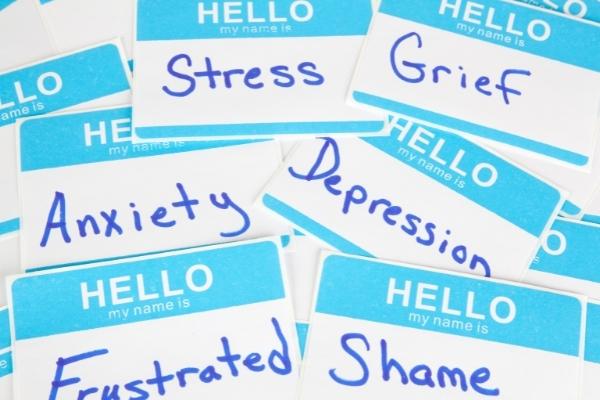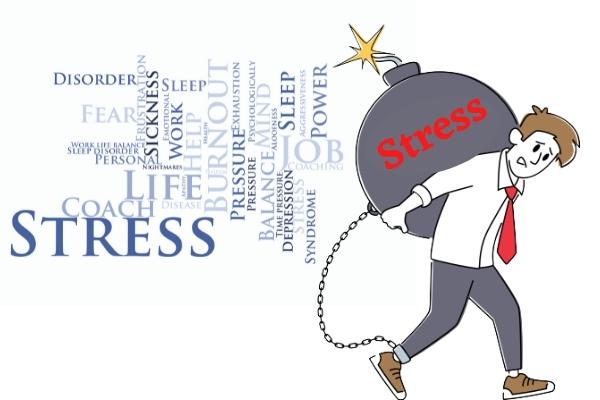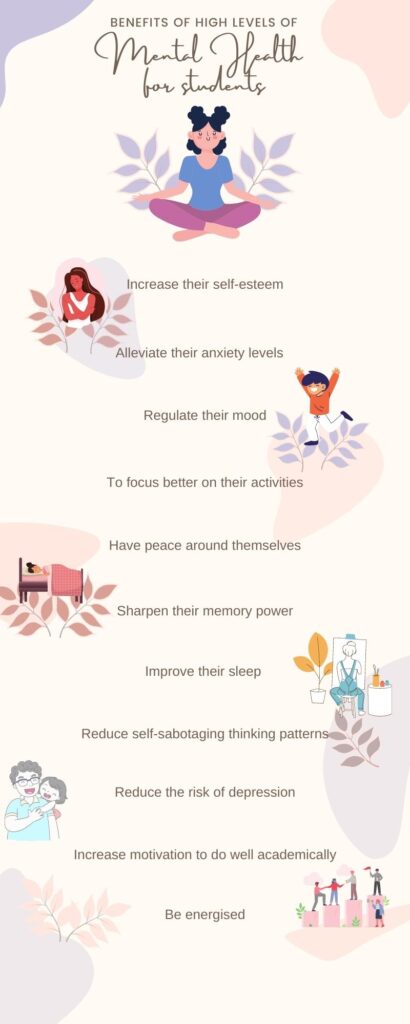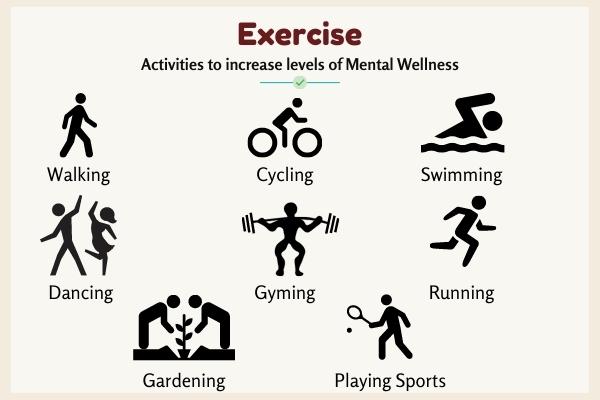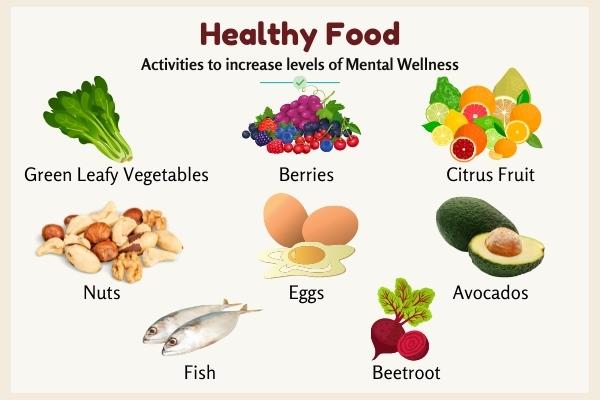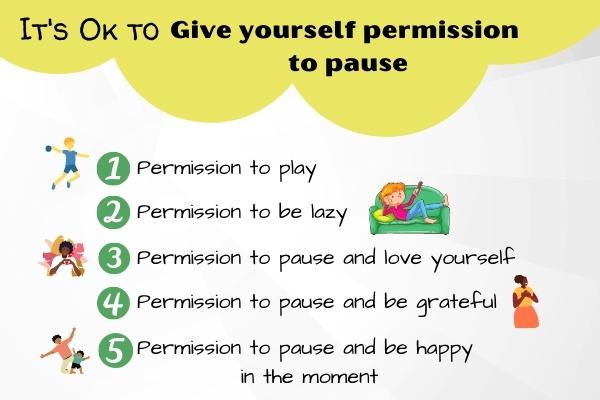Nourish your mind – the gateway to your body and soul.
‘Mental Health’ – this term is often misunderstood. Many substitute it for mental illnesses like depression, anxiety disorders, psychosis, etc.
I will be interchangeably using the words mental health and mental wellness. World Health Organisation defines mental health as “a state of well-being in which every individual realises his or her own potential, can cope with the normal stresses of life, can work productively and fruitfully, and is able to make a contribution to her or his community.”
To think, emote, interact with one another, earn a living, and live a fulfilling life, we need to be in good mental health. Therefore, promoting, protecting, and restoring mental health is an essential concern for individuals and communities and societies across the globe.
What ‘Is Going Well’ With High Levels of Mental Health?
High levels of mental wellness are connected with more significant learning, creativity, and productivity and more pro-social behaviour and positive social relationships. They are also associated with improved physical health and longevity.
An essential element of positive mental health is creating environments to succeed in work, study, and in your daily life. We all experience personal difficulties from time to time, disrupting our lives and creating confusion in our minds. To achieve academic success, most students must commit significant time and effort and adhere to a disciplined routine, which can stress their mental health. Therefore, we should have strategies in place to protect our mental health during times of high stress.
How Happens When Students Are Low On Mental Wellness?
Today stress and anxiety are common words amongst students.
Chronic stress has been proven to damage the hippocampus (McLaughlin, Gomez, Baran, & Conrad, 2007).
As a result of this stress, students often experience.
- a decrease in concentration and memory,
- confusion,
- loss of humour,
- anger, irritability, and fear.
What Are the Benefits of High Levels of Mental Health For Students?
Maintaining regular levels of mental wellness helps students to
- Alleviate their anxiety levels.
- Regulate their mood.
- To focus better on their activities.
- Have peace around themselves.
- Increase their self-esteem.
- Reduce the risk of depression.
- Reduce self-sabotaging thinking patterns
- Increase motivation to do well academically.
- Sharpen their memory power
- Improve their sleep
- Be energised
How Can Students Increase Their Levels of Mental Wellness Quotient?
The key to high levels of mental wellness is ‘Practice’ and more ‘practice’. Regular practice improves mental health levels, which helps students counteract the chronic stress that is reported as an epidemic around the world of education.
Mental health practices can reduce the risk of stress on the brain.
Activities to Increase Levels of Mental Wellness
Increasing mental health doesn’t have to be expensive or time-consuming to make simple changes to your lifestyle. Most people can do this. So why not get started now? However, if you cannot follow even one of the below-mentioned activities, ask yourself, “What is stopping you from following them?”. Maybe there is a need to start your therapy.
1) Talk about your feelings
Most of us learn to bottle up our feelings since childhood.
“Don’t be upset.”
“It’s not good to be angry.”
“I don’t like to see you sad.”
These may be some of the common statements most of heard while growing up. However, when feelings are not allowed to be talked about openly, it indicates low mental health.
A student who can talk about their feelings will stay mentally healthy and cope with the times. Remember, having a conversation about your feelings isn’t a sign of weakness. Instead, taking care of your wellness is part of staying healthy and taking charge of your wellbeing.
2) Exercise
Exercising regularly can boost your self-esteem, improve your sleep, and improve your mood. In addition, your brain and other vital organs are kept healthy through exercise, which improves your mental health.
There are many different ways to exercise or stay active. The idea is to pick an activity that is fun and puts a smile on your face.
- Walking
- Dancing
- Gyming
- Swimming
- Cycling
- Running
- Playing sports
- Gardening
3) Brain Food
Keeping your health in good shape is essential when you’re a student trying to learn and remember information. In addition, keeping yourself healthy will help you accomplish your academic goals.
The most important aspect of a healthy diet is keeping your body and brain nourished and ready to take on challenging tasks. Still, certain foods are especially beneficial for brain health and mental performance.
- Food is rich in fibre like green vegetables, beans, lentils etc.
- Berries
- Citrus fruits like oranges and grapefruits
- Nuts like almonds, walnuts, etc
- Eggs
- Avocadoes
- Fish
- Beetroot
- All vegetables
4) Connecting with family and friends
Social connection is essential. This is especially true when students are unable to meet family and friends because of our current pandemic.
One of the best ways to catch up with someone is face to face, but it’s not always possible. Today, more students connect with each other via online platforms, have Netflix parties, and generally enjoy themselves.
Taking time out of your studies to meet up with your family and friends helps you relax and nourishes your brain.
Stay in touch!
5) Ask for help
Many times, children learn not to ask for help, in case they may look stupid. I have come across clients who are shy of asking questions in class because they fear being made fun of.
None of us is born superhuman or perfect. We all need help sometimes. We get tired or overwhelmed by how we feel or by situations that do not go as planned.
Seek help if you feel you are unable to cope with things. You may be able to get practical help or advice from your family or friends.
6) Take regular breaks
Our brain is like a sponge. It needs to be squeezed to make space for more learning regularly. Or you can also compare our brain to our mobile. As you do not forget to recharge your mobile, similarly do not forget that our brain also needs to be recharged. The best way to recharge is by taking breaks.
A change of scene or pace provides mental health benefits. Some ways to take breaks can include:
- a five-minute pause from your studies.
- allowing five minutes to rest your eyes.
- maybe a lunch break without focusing on studies.
- a weekend exploring new places.
- All it takes is a few minutes to de-stress and recharge. So, give yourself some ‘me’ time.
7) Give yourself permission to pause
Finally, start building your resilience and mental well-being by giving yourself permissions.
- Permission to play
- Permission to be lazy
- Permission to do nothing
- Permission to be yourself
- Permission to pause and love yourself
- Permission to pause and be grateful
- Permission to pause and appreciate the steps taken so far
- Permission to pause and be happy in the moment
- Permission to pause and say, “I am Ok, as I am.”
8) Therapy
If you have had bad experiences that may trigger excessive anxiety, stress, depression, or not allowing you to be functional in your daily life, therapy can help. Therapy provides a safe environment for you to offload your excessive emotional baggage. At Insightful, we provide free counselling to students through our trainee counsellors. This free counselling is via the online platform. So do contact us if you would like to speak to our counselling interns.


